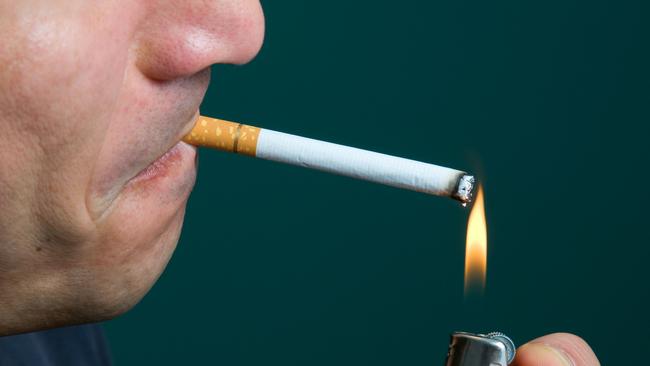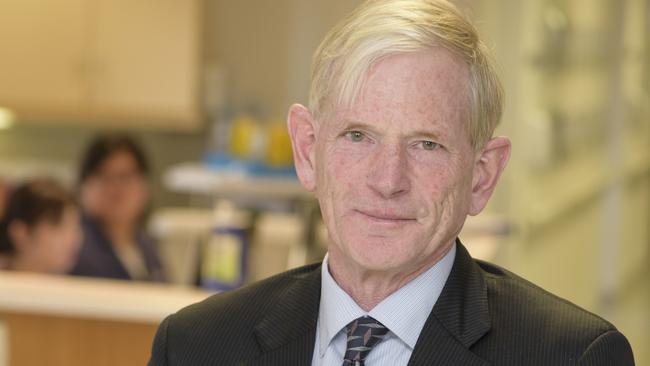Smokers could soon be offered regular screening for lung cancer
Lifesaving screening could soon be offered to current and former heavy smokers, who are most at risk for lung cancer in a bold plan to improve early detection.

VIC News
Don't miss out on the headlines from VIC News. Followed categories will be added to My News.
Current and former heavy smokers could soon be offered regular screening for lung cancer.
The Royal Melbourne Hospital is leading an international trial to test whether a CT scan is an efficient and cost-effective way to detect early cancers, given lung cancer is typically diagnosed at later and more fatal stages.
More than 300 Victorians have already been recruited to the trial, with four early stage cancers detected.
Lead researcher and RMH respiratory physician Associate Professor Lou Irving, said after an international study found that a low-dose CT scan in those most at-risk of lung cancer saved more lives than scanning using x-ray, it was important to test if screening was appropriate for the Australian health care system.
“The overall survival and cure rate for lung cancer is 15 per cent,” Associate Prof Irving said.
“That’s horrific compared to other cancers in the order of 70, 80 and 90 per cent.
“The reason for this is when lung cancers are diagnosed it has usually spread, and a surgical cure can only be used in a minority of people.

“If there is a technique where you can screen for cancers before they cause coughing up of blood, shortness of blood or chest pain, it will potentially impact on the very poor cure rate.”
More Australians die of lung cancer than any other cancer, and it claims 8000 lives annually.
Researchers are aiming to recruit 500 ex and current smokers from each of the sites in Melbourne, Perth, Sydney and Canada. Participants will undergo the scan, breathing tests and be linked to smoking cessation programs. If cancers are found they will be directed to treatment, and all tests will be repeated two years later.
While one of the biggest drawbacks of any health screening program are the false positives, Associate Prof Irving said part of the trial involved testing an algorithm that analysed the scans to better pick the dangerous spots from the benign.

“People who’ve smoked are not only more likely to have lung cancer, but to have other dots and spots and scarring on their lungs,” he said.
“Only 1 in 20 of the things we pick up on the scan turn out to be cancer.
“We think we’ve got a way of ensuring that the false-positives don’t cost too much, cause complications or psychological harm, but that’s what we’re testing.”
Ken Coughlan, 66, took part of the study three months ago with the scan revealing he carried
early stage lung cancer.
MORE NEWS:
HOW TO MULTIPLY YOUR TAX INCOME
NEIGHBOURS ‘SCARED’ OF FAMILY DOG THAT MAULED BOY
SEARCH FOR MISSING STUDENT COMES TO TRAGIC END
Mr Coughlan, who has smoked for the past 40 years, said he was prompted to quit since undergoing surgery to remove the affected part of his lung.
“All the nurses and doctors I’ve met have asked what my symptoms were, but I didn’t have any,” Mr Coughlan said.
“I feel really lucky I had the screening.”
Heavy ex or current smokers aged 55-80 years are needed for the study.
To take part phone (03) 9342 4707.


